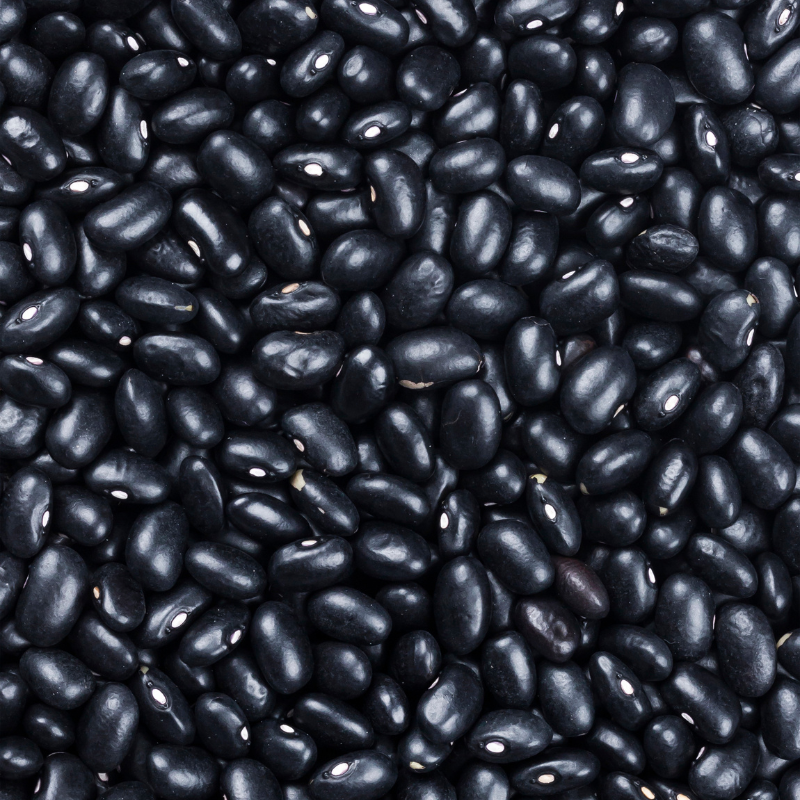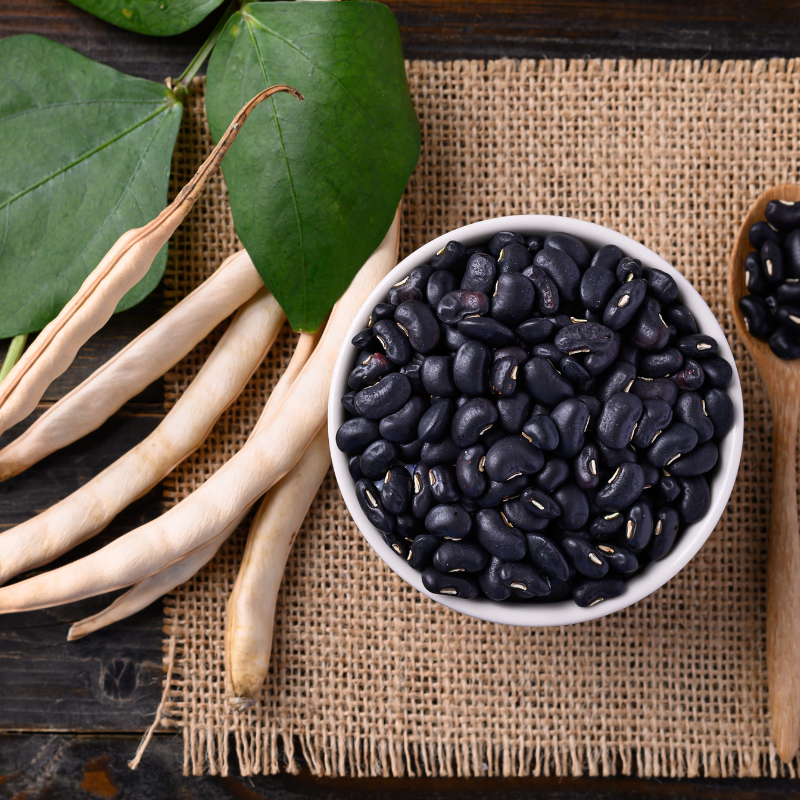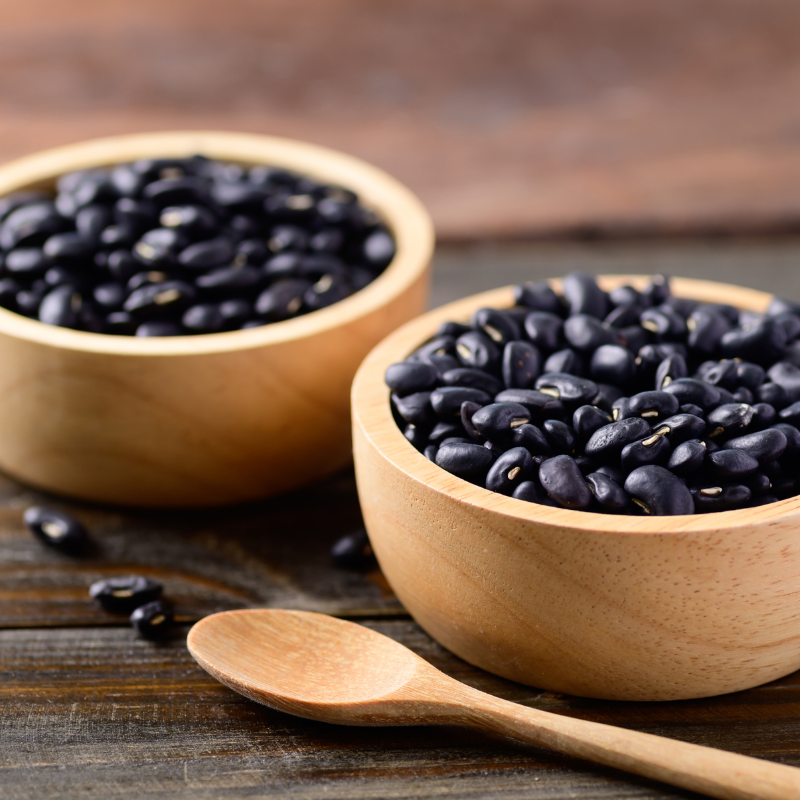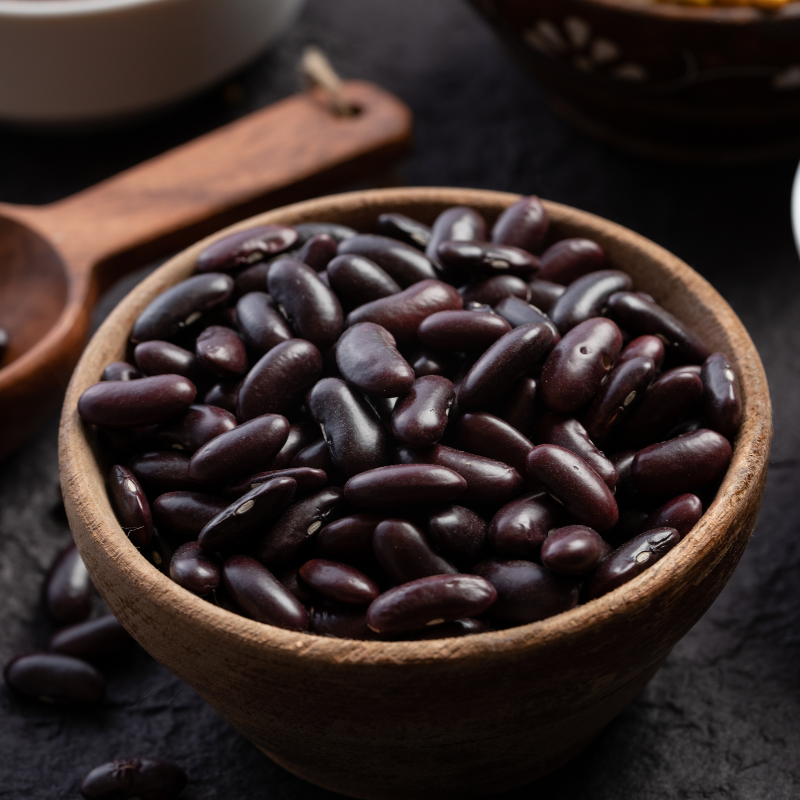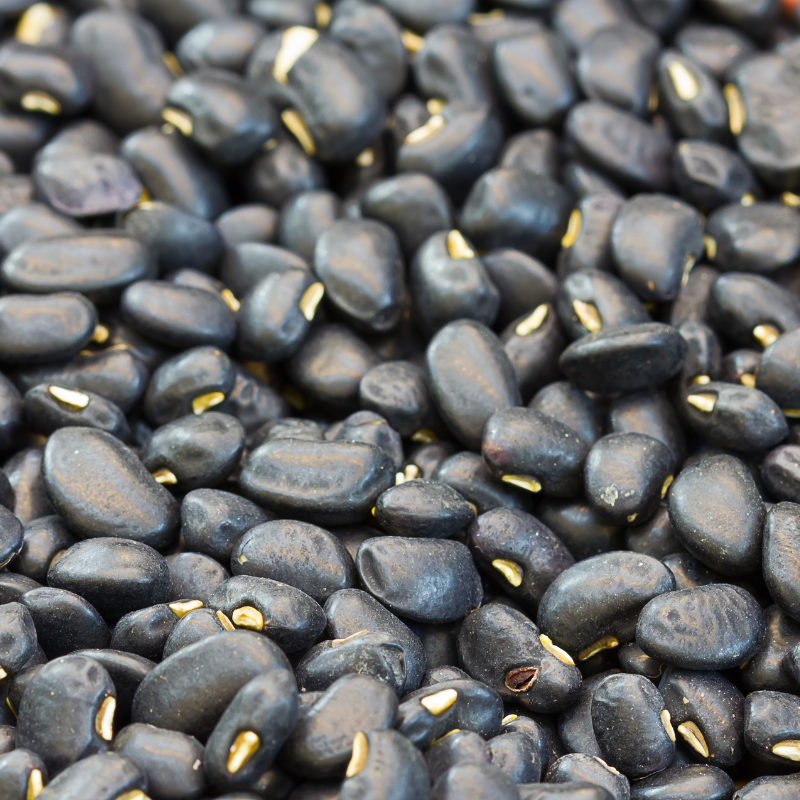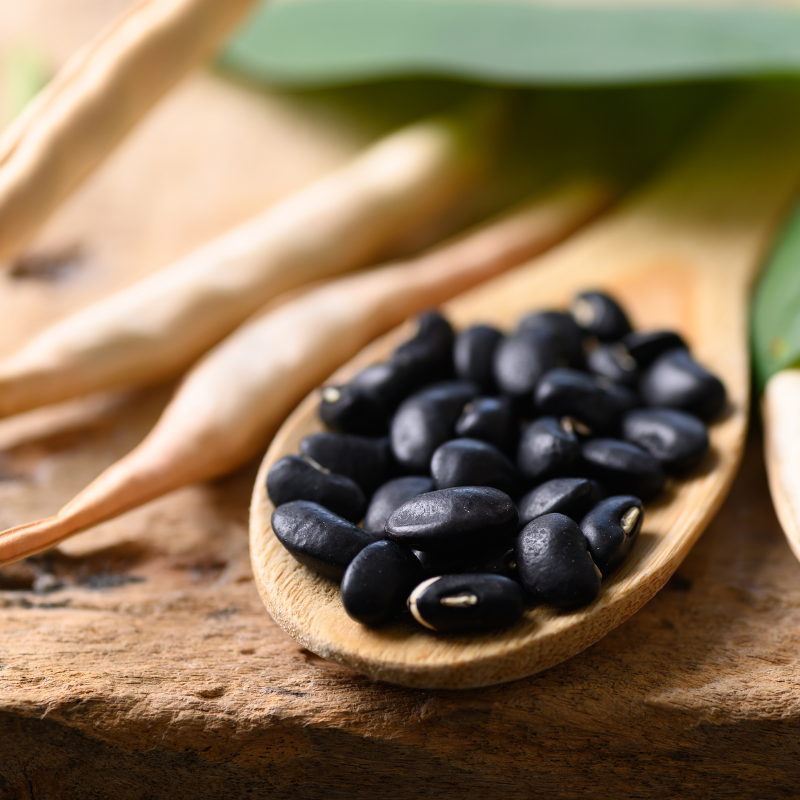Phaseolus vulgaris (Black Rajma Beans, Black Kidney Beans) Seeds
Phaseolus vulgaris, commonly known as Black Rajma Beans or Black Kidney Beans, is a premium legume variety treasured for its rich, earthy flavor and creamy texture. Widely cultivated in India and around the world, these beans are a versatile ingredient in hearty dishes such as curries, stews, and rice preparations. Their deep black color and high nutritional value make them a staple in health-conscious diets.
Characteristics
Black Rajma Beans grow on bushy or pole-type plants, reaching 40–90 cm in height. The plants produce trifoliate green leaves and small white or pink flowers that develop into elongated pods containing smooth, glossy black beans. Known for their rich taste, these beans hold their shape well during cooking, making them a favorite in slow-cooked dishes.
Uses and Benefits
Black Rajma Beans are perfect for dishes such as Rajma Masala, soups, chili, and salads. Their creamy consistency when cooked pairs well with bold spices, making them a versatile addition to Indian and global cuisines. Nutritionally, they are high in plant-based protein, dietary fiber, iron, and potassium. These beans promote heart health, improve digestion, and provide sustained energy. Being low in fat and cholesterol-free, they are also ideal for weight management and balanced diets.
Cultivation
Black Rajma thrives in temperate and subtropical climates, preferring fertile, well-drained soil with a pH of 6.0–7.5. Prepare the soil by incorporating organic compost or well-rotted manure before planting. Sow seeds at a depth of 3–5 cm, spacing them 15–20 cm apart in rows 30–45 cm apart. Germination occurs within 7–10 days under warm, moist conditions. Plants require full sun and moderate watering, particularly during flowering and pod development. Pods mature within 70–90 days and should be harvested when dry and brittle for dried beans.
Unique Features
Black Rajma Beans stand out for their deep black color, rich taste, and nutritional density. They cook faster than other kidney bean varieties, making them convenient for busy cooks. Their ability to retain flavor and texture in slow-cooked dishes ensures consistent culinary results.
Growing Tips
Rotate crops annually to maintain soil fertility and reduce the risk of pests. Apply mulch around plants to retain moisture and suppress weeds. Harvest pods promptly to ensure high-quality beans and encourage continuous production.
Shipping
Available for shipping within India and worldwide. Orders are typically dispatched within 1–2 weeks.
From Deodar Seeds Company.
Phaseolus vulgaris, commonly known as Black Rajma Beans or Black Kidney Beans, is a premium legume variety treasured for its rich, earthy flavor and creamy texture. Widely cultivated in India and around the world, these beans are a versatile ingredient in hearty dishes such as curries, stews, and rice preparations. Their deep black color and high nutritional value make them a staple in health-conscious diets.
Characteristics
Black Rajma Beans grow on bushy or pole-type plants, reaching 40–90 cm in height. The plants produce trifoliate green leaves and small white or pink flowers that develop into elongated pods containing smooth, glossy black beans. Known for their rich taste, these beans hold their shape well during cooking, making them a favorite in slow-cooked dishes.
Uses and Benefits
Black Rajma Beans are perfect for dishes such as Rajma Masala, soups, chili, and salads. Their creamy consistency when cooked pairs well with bold spices, making them a versatile addition to Indian and global cuisines. Nutritionally, they are high in plant-based protein, dietary fiber, iron, and potassium. These beans promote heart health, improve digestion, and provide sustained energy. Being low in fat and cholesterol-free, they are also ideal for weight management and balanced diets.
Cultivation
Black Rajma thrives in temperate and subtropical climates, preferring fertile, well-drained soil with a pH of 6.0–7.5. Prepare the soil by incorporating organic compost or well-rotted manure before planting. Sow seeds at a depth of 3–5 cm, spacing them 15–20 cm apart in rows 30–45 cm apart. Germination occurs within 7–10 days under warm, moist conditions. Plants require full sun and moderate watering, particularly during flowering and pod development. Pods mature within 70–90 days and should be harvested when dry and brittle for dried beans.
Unique Features
Black Rajma Beans stand out for their deep black color, rich taste, and nutritional density. They cook faster than other kidney bean varieties, making them convenient for busy cooks. Their ability to retain flavor and texture in slow-cooked dishes ensures consistent culinary results.
Growing Tips
Rotate crops annually to maintain soil fertility and reduce the risk of pests. Apply mulch around plants to retain moisture and suppress weeds. Harvest pods promptly to ensure high-quality beans and encourage continuous production.
Shipping
Available for shipping within India and worldwide. Orders are typically dispatched within 1–2 weeks.
From Deodar Seeds Company.

